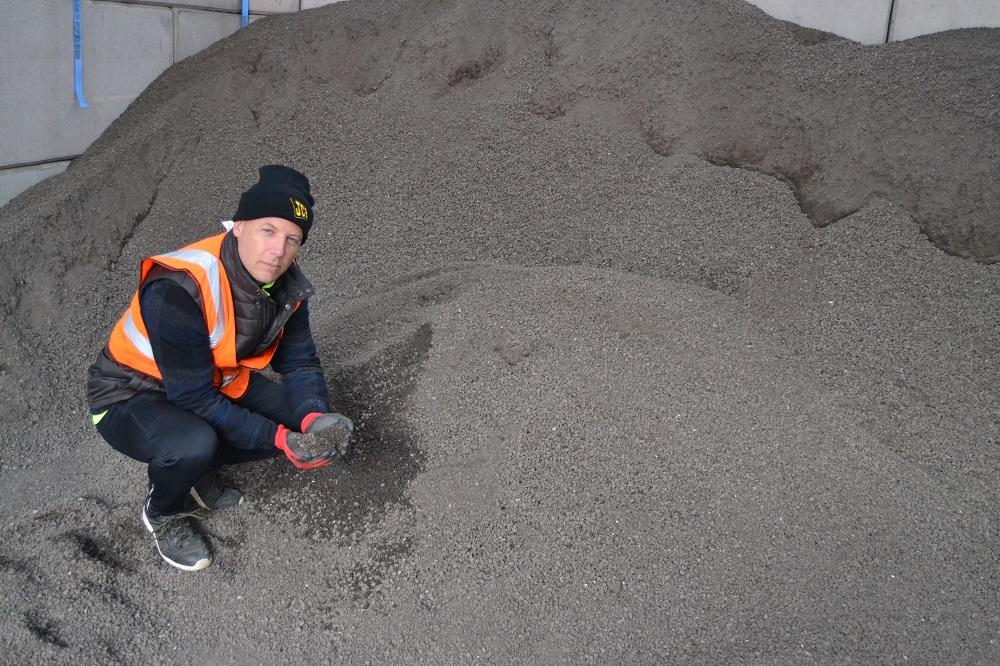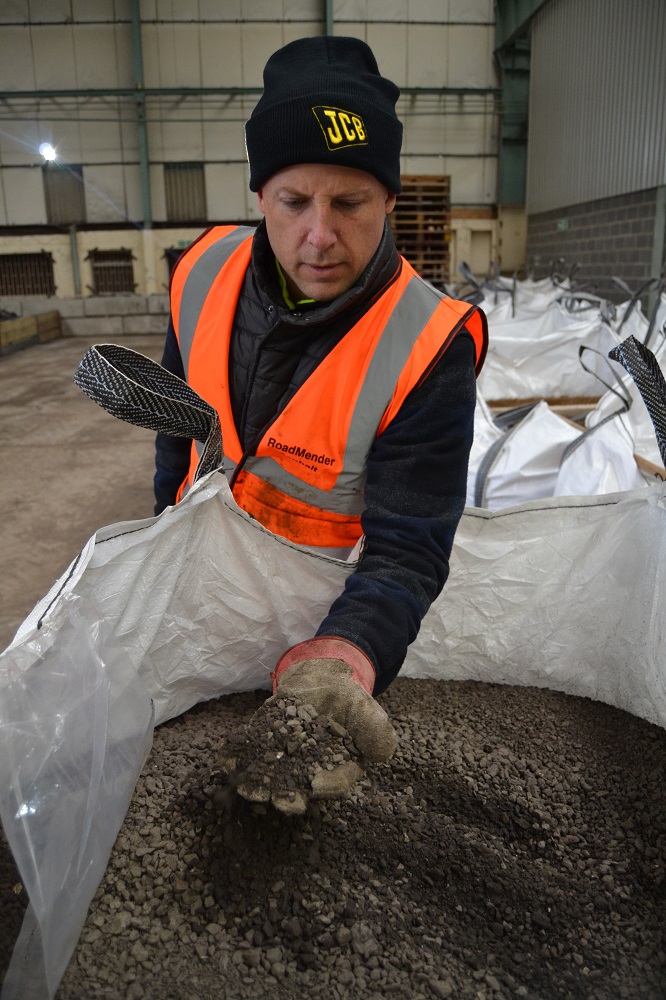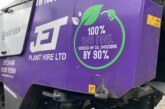Roadmender’s recycled asphalt solution is making contractors considerable savings.
More than ever Britain needs to keep on the move, and that makes the repair and maintenance of our roads an imperative. Our highways are the arteries of our economic growth, ensuring that the vital force of business flows freely, and keeping them in rude health will require the industry to embrace new technologies and working techniques.
Whatever asphalt you need, whenever and wherever – the Roadmender is successfully liberating contractors engaged in pot hole patching and utilities reinstatement from reliance on an asphalt plant, and making a significant impression on their bottom line into the bargain.
Roadmender’s parent company is already well practised in providing the road repair and maintenance sector with the materials to do the job.
For more articles on Britain’s roads click here, here and here.
At its Sheffield base, Billian employs a process imported from across the Atlantic to refine and modify bitumen by blending it with a polymer – in this case truck tyres – and pelletising it.
The ground tyre rubber acts as a very high quality bitumen modifier, and the end result is a bagged product made to the specification of the client, but the manufacturer’s Harry Pearl, is not content to stop there.
“We’ve now completed the construction of a full scale recycling plant,” enthuses the RoadMender CEO, “and with materials production and the RoadMender machine working in harmony that’s when we really expect things to take off.” In fact, what the new facility will produce is completely carbon neutral asphalt, whilst the green machine Harry has also introduced to the market can accrue significant savings on site.

Road planings are brought into Sheffield plant to be crushed and screened. Only the premium material from the high PSV, surface course of motorways is utilised, and it is carefully analysed to ensure its quality and optimum usage.
Just as with the existing pellet product this is then blended with polymer modified bitumen pellets to an exact specification. “Using this material we can make any type of asphalt a customer might want, continues Harry.
“We’re producing a 10mm SMA air mat for Gatwick airport, for instance, whilst we can also provide mastic asphalt designed for Iron work reinstatement. Ultimately, the plan is for further regional recycling facilities on the Sheffield model around the country that can service road contractors locally. We recently received PTSPAS HAPAS equivalent certification for the recycled materials and we’re now in a position to roll it out wherever there is a demand.”
That level of expansion is for the future but with up to 50 units now in service, and some of the country’s largest contractors already amongst its advocates, the Roadmender is very much part of the present.
This mobile volumetric asphalt batching plant allows contractors to produce material, in the right amount and to the correct temperature, on site. That makes available the same high quality hot mix asphalt you would collect from a plant, but with one crucial difference – you are completely eliminating the need to go to the plant in the first place.
That means repairs can also be completed out of hours; because you’re using exactly the amount you need, there’s no over ordering, and there’s no waste from asphalt going cold. Quite simply, contractors can get the job down quicker, using a premium product, move on to the next site, and repeat the trick. More repairs in a typical working day means a better experience and less disruption for the road user and a more efficient operation for Highways England or the Local Authority.
“We’ve championed the Roadmender concept from the outset,” adds Dickie Aston-Wright, Group Streetworks Manager at Clancy Group. “It’s not just the machine but the material and those two elements come together to provide a process that is beautiful in its simplicity. We’ve got eight of these units now and they’re very easy to use, and we haven’t had a single failure.
“What our local authority clients want is for us to arrive and be gone as quickly as possible, and do the kind of job that ensures that we never have to revisit, and that’s what the Roadmender allows – it’s the perfect tool for their purposes. Using bagged material means that teams can have different specifications of asphalt already with them and switch between the two.
Available in 20 kg bags on a 1 ton pallet, Roadmender can produce any grade of asphalt that a job might require, whilst AC 6 dense surf, AC 10 close surf, SMA 10 surf and HRA 30/14 F surf are also available. All the comnay’s asphalt products are produced in an ISO 9001 compliant facility to comply with BS EN 13108 and PD 6691:2010
The developers of the machine are keen to stress that this is patch repair rather than a paving solution and would work at maximum efficiency of up to around 15 sq m of coverage per patch, but within those parameters the advantages are considerable, as Harry explains.
“With the Roadmender you can produce whatever material whenever you want and eliminate up to 20 – 30 per cent of the waste – and achieve 40 per cent cost savings on material when using a recycled asphalt product.”
There are now two machines in the Roadmender portfolio. The DBP 250 is 1.1 tonne unit with a 200kg batch capacity every eight to twelve minutes. It can be transported on 7.5 ton lorry, whilst its 20 hp water cooled diesel engine is quiet in operation.
Its larger sibling, the Roadmender DBP 500, is a 2.3 tonne example with a 500kg capacity, and can achieve up to 2 tonnes of asphalt in an hour. The drum has been reconfigured in order to fit on a higher 18 tonne vehicle.










